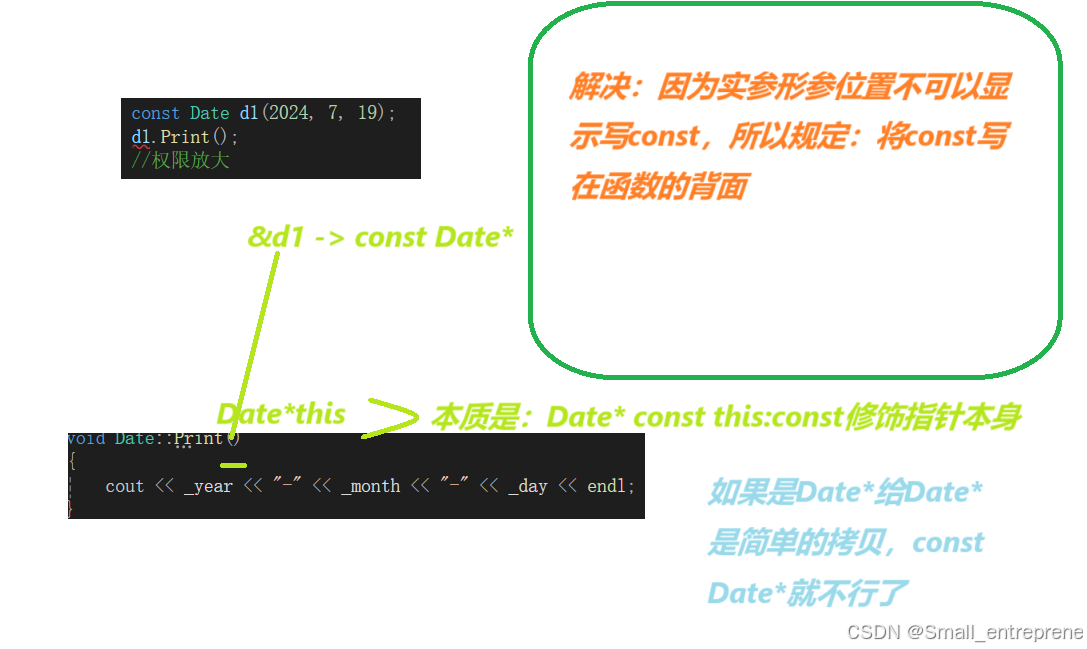1.const成员函数
• 将const修饰的成员函数称之为const成员函数,const修饰成员函数放到成员函数参数列表的后⾯;
• const实际修饰该成员函数隐含的this指针,表明在该成员函数中不能对类的任何成员进⾏修改。 const 修饰Date类的Print成员函数,Print隐含的this指针由 Date* const this 变为 const
Date* const this
void Date::Print()
{
cout << _year << "-" << _month << "-" << _day << endl;
}
const Date d1(2024, 7, 19);
d1.Print();
//权限放大
解决:(const修饰后不能修改)
void Date::Print() const
{
cout << _year << "-" << _month << "-" << _day << endl;
}
const Date d1(2024, 7, 19);
d1.Print();
Date d2(2024, 7, 20);
d2.Print();
//权限可以缩小所以:以后不修改的尽量加上const
2.取地址运算符重载
取地址运算符重载分为普通取地址运算符重载和const取地址运算符重载,⼀般这两个函数编译器⾃动 ⽣成的就可以够我们⽤了,不需要去显⽰实现。除⾮⼀些很特殊的场景,⽐如我们不想让别⼈取到当前类对象的地址,就可以⾃⼰实现⼀份,胡乱返回⼀个地址
#include<iostream>
using namespace std;
class Date
{
public:
//两个都写,优先取合适的
Date* operator&()
{
return this;
// return nullptr;
//使坏:
//return (Date*)0x2673FF40;
}
const Date* operator&()const
{
return this;
// return nullptr;
//return (Date*)0x2673FF40;
}
private:
int _year; // 年
int _month; // ⽉
int _day; // ⽇
};
